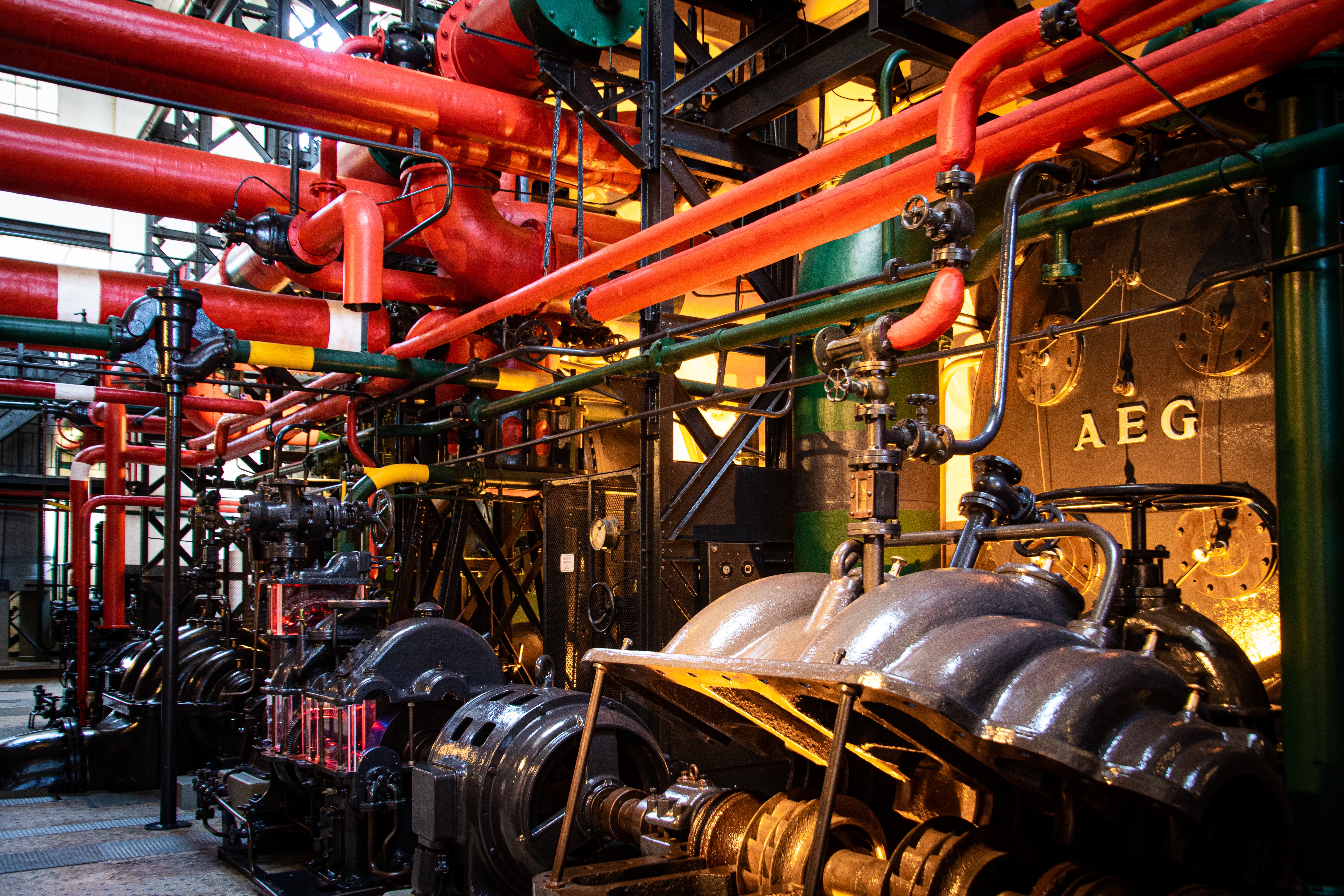
Heat pumps are two-step, renewable heat exchangers, used to channel heat from the air or ground into a building heating system. The trajectory of UK heating systems over the next 10 years will be a gradual transition away from gas-powered boilers to more sustainable power sources for both businesses and homes, and heat pumps have a crucial role to play in this.
With a ground source or air source heat pump, pump loops transfer ambient, 'wasted' outdoor thermal energy (collected in a sink) inside to usefully warm rooms, boiler circuits, and even swimming pools. They're an excellent low-profile, low-power, eco-friendly alternative to relying on expensive gas-powered boilers and electrical immersion heaters.
In this article, we explain how commercial heat pumps work.
What Is a Heat Pump Heating System and How Does It Work?
Daily warmth from the sun or the earth's core collects at an insulated high-conductivity heat sink (e.g. a solar panel, thermal pipeline, metal node). Gathered heat then conducts to a fluid reservoir before transferring inside via a fan-powered evaporator-condenser link (much like a 'reverse' refrigerator).
A compressor pressurises the sink-warmed vapour to concentrate heat further, enhancing the pump's efficiency. Regulator valves prevent constant liquid and gas backflow, expansion, and contraction from damaging the system.
Once inside, the hot vapour condenses back to liquid form near an insertion point (i.e. a radiator). Cold displaces through classic thermal motion (or 'exchange') along another, outbound liquid pipeline.
Vents, metal heat injectors, underfloor piping, or clasps transfer the heat into radiator loops or open spaces. Most heat pumps will target a moderate benchmark of around 35-55 °C (liquid immersed).
A combination of consistency, flexibility, reliability, and resilience help make heat pumps an efficient heating solution for buildings of all sizes – even up to large scale commercial and public premises.
Does Anything Improve Heat Pump Performance?
Heat pumps always perform more efficiently with well-insulated buildings in locales where the heat sink can warm for longer each day, so a key part of heat pump implementation is assessing the building’s insulation level first and upgrading it if necessary. A heat pump will also work faster if the target inside temperature is close to the outside average, making them perfect for large open space buildings (e.g. call centres, bus stations, churches, museums etc).
Do Heat Pumps Have Any Special Features?
Due to heat retention, pumps will keep working effectively overnight and through bitterly cold weather (down to c.-13-20 °C). Advanced heat pumps can also invert their exchange process for the hotter months of the year, cooling down liquid instead and using their power source to operate an air conditioning system.
Heat Pump Varieties
Heat pumps come in two distinct types determined by their power source: air source or ground source.
1) Ground Source (Geothermal)
Ground source heat pumps use an underground collector array to harvest the vast retained warmth found in the subsurface ground. The sink is either a vertical borehole probe (c.10-100 m deep) or a horizontal surface grid (a pipeline buried c.1.2 m under topsoil).
2) Air Source (Atmospheric)
Roof, platform, wall, and pole-mounted 'all-in-one' converter panels can act as the heat pump's thermal sink in air-to-water and air-to-air layouts. Daily heat from the sun and air provides free energy.
What are the advantages of heat pumps for your commercial heating system?
- Average cost savings of c.45% (yearly, ofgem estimate) over gas, electric, and oil
- Cold, rain, and storm resistant
- Consistent, reliable performance
- Easily combinable with electric and gas-powered backup boilers
- Eco-friendly, fossil fuel free
- Low to no carbon footprint
- Recoverable installation costs through long-term energy savings
- 'Reversible' summer air con
- Simple to install, run, and maintain
- Ultra-low electricity use
- Versatile, adaptable designs
Heat Pumps and More From Lowe and Oliver
At Lowe and Oliver, we specialise in supplying customised heat pump powered heating and cooling systems of all kinds to heritage, public, and commercial buildings. Please call today to find out more.

Image Source: Pexels



